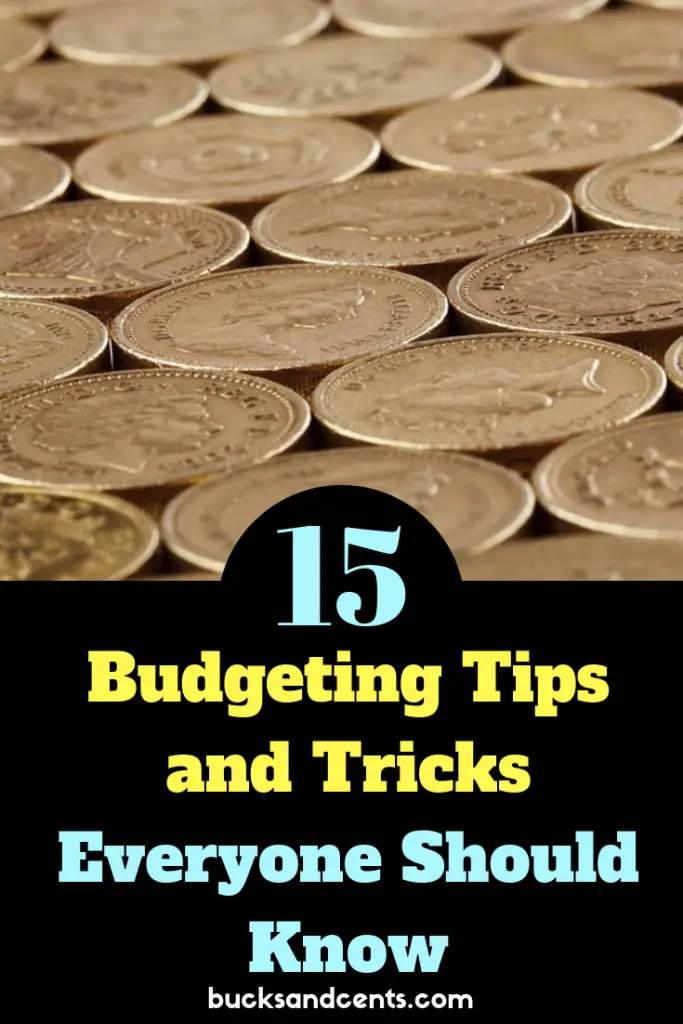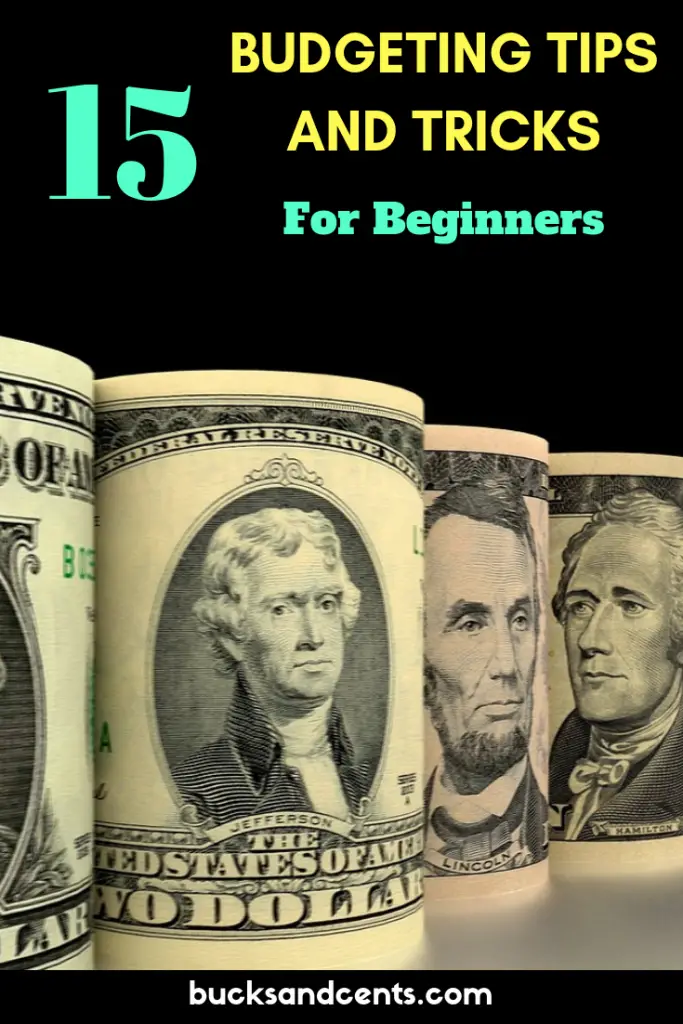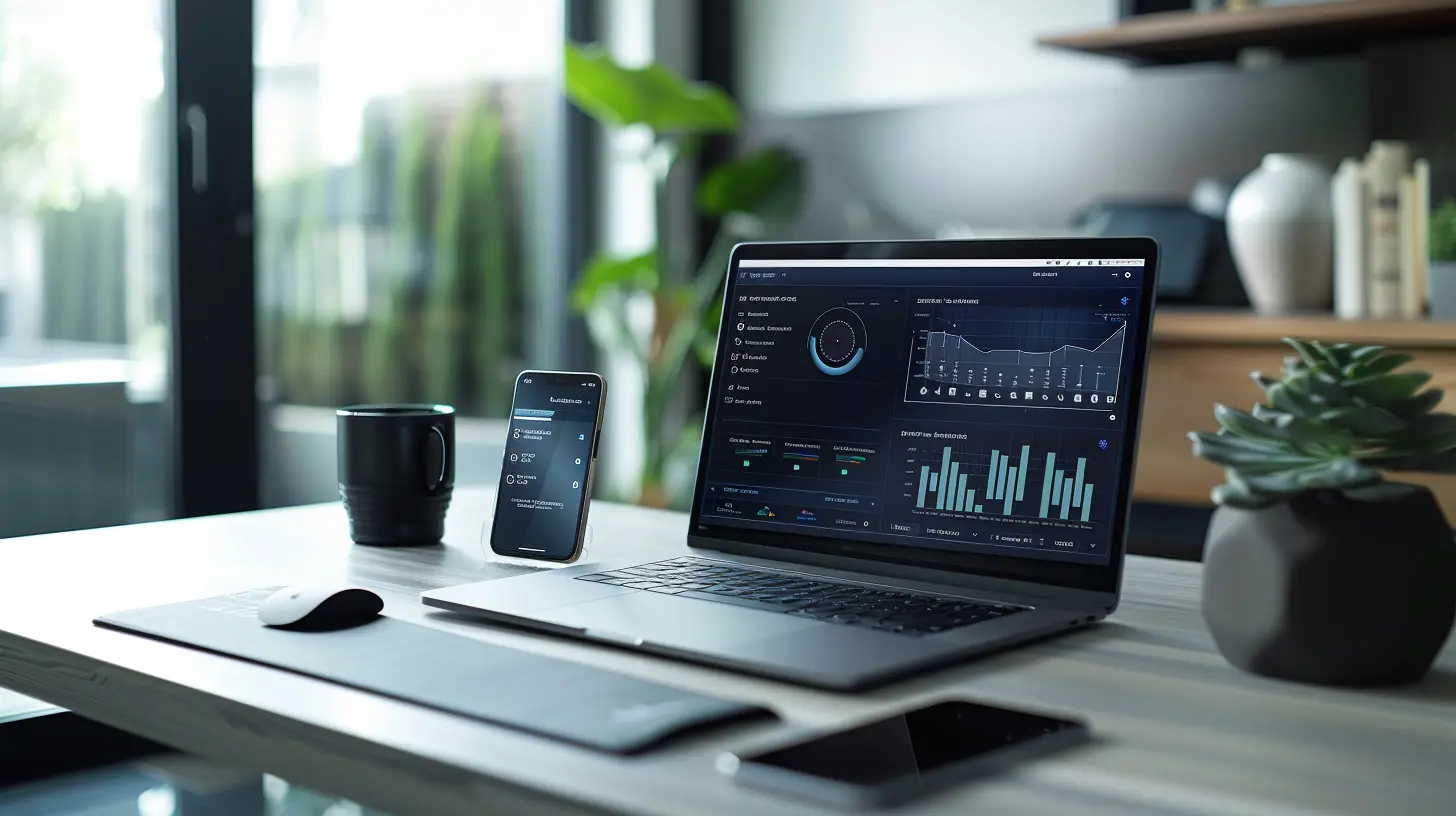One of the best things you can do to take control of your financial life is to implement simple budgeting tips and tricks to improve your personal budget.
When people hear the word budget they often cringe because to some, it is somewhat of a nightmare. They have a lot of fear about sticking to a budget. This fear of budgeting also causes a lot of stress and anxiety for some people. However it does not have to be that way.
By following these simple budgeting tips and tricks below, you can be well on your way to improving your financial life.
Simple Personal Budgeting Tips for Financial Success
Using personal budgeting tips and tricks can go a long way in the formation of your budgeting blueprint. Budgeting techniques are essential to teach teens about financial responsibility.
The best part of these personal budgeting tips is that they can be applied to several different family structures. By following these simple budgeting tips and tricks below, you can have a budget template in place in no time.
These personal budgeting tips are great budgeting tips for families and also great budgeting tips for beginners.
1. Define Your Budget
Deciding to create a budget is a great first step in taking control of your financial life. Equally important is the reason why you are creating a budget.
People often find themselves using a budget for several reasons in their daily finances.
Some of those reasons are that they are unable to build a savings or they are living paycheck to paycheck. Whether it is short-term goals, long-term goals, or other reasons, becoming aware of what they are plays an important role in defining the function of your budget.
Below are reasons why to create a budget:
- Finding a way to save more money
- Reducing overspending on problem areas
- Ending fights about money for couples
- Making sure your spending reflects your goals and values
- Breaking the paycheck-to-paycheck cycle
- Avoiding spending money you don’t have
- Getting out of debt
- Staying on track toward long-term financial goals
By defining your reason for a budget you will be more inclined to stick with it.
By creating a budget and using a personal finance flowchart, you will stay motivated by working towards financial goals.
2. Budget Conservatively For Income
Overestimating income can be a huge challenge down the road to deal with.

This is one of the most important budgeting tips and tricks to use.
When the income you receive falls short, you will have to make adjustments in your household budget to cover the shortfall.
That is why you should use the lowest guaranteed monthly income received.
If you have things like alimony that you receive, there is no guarantee that you will receive that money each month.
Instead use things like a guaranteed paycheck for income from your employer.
Use that income amount to plan your budget expenses around.
I talk about using the lowest income amount as the strategy for how to build a budget for the self employed family.
3. Make Credit Card Payments Fixed Expenses
Paying down credit card debt and balances is one of the necessary steps to building wealth.
It is one of the first areas you should focus on once you have your budget template set up.
Making credit card payments is a necessity when it comes to how to fix your credit yourself. By paying down your debt and eliminating that monthly expense, you are slowly building up purchasing power with your money.
Think of the old saying it takes money to make money. In order to truly increase household wealth, you need to have capital available to put towards wealth building actions. That is why it is so important to make credit card payments part of your monthly budget as a fixed expense.
Once that fixed monthly expense has been eliminated, you can re-purpose that money for other strategies.
4. Add a Savings Line To Your Budget
Another one of the important budgeting tips and tricks is to save money.
A common mistake that people often make is that they forget to save. While yes, frugal living tips can get you a long way, you still have to save.
You should include a separate line item within your monthly budget that allocates some of your money into savings.
You can call this line item your emergency savings fund because that is exactly what it is.
By making this part of your monthly expenses and saving money, you are setting money aside.
This money can be used for unexpected expenses that will show up.
Unexpected expenses always do show up in a household, but by planning for it this way and selling the money aside you will have it when the need arises.
Your unexpected expense will be less disruptive to your monthly budget.
5. Include Your Cash Transactions as Monthly Expenses

Every month I end up spending cash on certain things that I purchased.
One of these items would be considered gasoline.
- Using cash is one of the best budgeting tips and tricks used to lower your expenses.
While my credit card company does pay me 5% to purchase gas, I still avoid using my credit card.
I chose to not use it mainly for security reasons.
There are other things I use cash for such as eating dinners out, paying for lunches, and some miscellaneous stores that I go to. Even when I budget by paycheck, I still account for some cash transactions with each check.
- Not only do I find myself saving roughly 30% by using cash versus using a credit card, I am also taking additional steps to prevent credit card theft.
It’s the most important simple budgeting tip when it comes to identity security.
So for these expenses such as gasoline and occasional meals out, they still need to be included. You still should include them with the new monthly budget even though they are cash transactions.
If you are able to reduce cash transactions, you will have money available to put towards a house down payment if you’re looking to buy your own place.
6. Use Realistic Targets For Flexible Expenses
One of the great budgeting tips and tricks when budgeting is to use realistic targets for flexible expenses.
While you build your budget, you will have to take into account what target to use for flexible expenses.
These would be the expenses they vary from month-to-month such as your water bill, clothing, household maintenance costs, and electricity.
These amounts will change every month such as your grocery bill. There are ways how to save money on groceries that will yield a reduction in expenses for this category.
One way to address this is to use the average of three months worth of these expenses. This strategy would work well for things such as clothing or smaller purchases such as things like Starbucks for coffee in the morning.
For things such as your electric bill and your natural gas bill for your furnace, using a three-month average would not be the best way to go.
This is because your electric bill will have seasonal changes so will your natural gas bill if that is what you use for your furnace.
For these types of expenses, it is better to use the highest monthly expense and use that amount for the whole year for every month.
This is covered a little bit in more detail with our next tip.
7. Making Seasonal Adjustments To Your Budget
As we described above there are certain types of flexible expenses that are higher at certain times of the year.
One way to address this is to use budgetary guidelines for the monthly high for the whole year as your budget expense.
This is a good strategy to sort of imply forced savings for the months that you do not hit that high.
For example in the summer time you will not be running your furnace so your natural gas expense would not come anywhere close to what it would be during the winter months.
Another way for you to achieve your financial goals is to make seasonal adjustments in your budget.
You can do this by looking at all of your flexible expenses during the four seasons. Calculate what the average is for those times of the year and you can use that amount for is your monthly budgeted expense.
Be sure to check out our budgeting resource page for all kinds of additional information!!!
8. Analyze Your Budget When You Have Lifestyle Changes

Regularly analyzing your budget is one of the best budgeting tips and tricks to follow.
When you have a major change in your life such as getting married, divorced, moving out on your own, or taking a new job, you should always analyze your budget.
There are all kinds of reasons to change your household budget strategy. Any of these factors could have a major change on your income and future expenses.
You want to make sure that your budget will financially address all of your needs and concerns for this major lifestyle change.
You don’t want to assume that everything will be OK.
Be sure to write down what the financial implications will be into an analysis with your budget so you can be prepared ahead of time.
9. Set a Budget For Christmas and Holiday Spending
Following budgeting tips and tricks will get you a long way.
However, when it comes to the holiday spending, make sure all of your year-long budgeting efforts are not blown off course due to holiday spending.
The last three months of the year usually have the highest consumer credit card debt.
A big reason for this is that people fail to plan within their budget to address Christmas and holiday spending increases.
Just sending out Christmas cards and postage to some of your family friends and relatives could easily cost $50 or more.
If you have to prepare the holiday meal, there will be extra cost for food, drinks, and other items that you would regularly not be planning for as an expense in your budget.
An easy way to address these additional costs is to set aside a certain amount of savings each month such as $50.
You can create a second savings account and dedicate $50 a month towards it to cover these holiday costs.
By the end of the year you will have $600 making this one of the best budgeting tips and tricks to boost your budget.
As your budget improves so will other things, such as your credit score.
Check out my post on how to improve your credit score that includes the steps necessary to quickly improve your FICO score.
10. Creating a Miscellaneous Category In Your Budget
As mentioned above there are always extra expenses that should be planned for such as the holiday spending.
You can either set up a separate savings account like what was mentioned above or you can create a miscellaneous category in your budget to cover these expenses.
If you decide to use the miscellaneous category, be sure to label what it covers.
For example you could cover holiday spending, vacations, and other one time events that may occur within the year.
11. Align Your Budget Goals and Values With Your Expenses
This is one of the more important budgeting tips and tricks to follow.
When your budget is complete, you should go through and review your expenses and look to see if they line up with your short and long-term financial goals.
I talked above how analysis is one of the best budgeting tips and tricks to keep your budgeting on track.
For example if one of your goals is to get out of debt or reduce credit card balances, then you want to be sure that your monthly budgetary expenses reflect that.
You should have and aggressive monthly expense factored into this category if you’re trying to pay off your credit card debt.
12. Create and Implement a Reward System
Following a budget is no walk in the park.
You will make mistakes and have mishaps here and there, but that is OK.
Don’t let that discourage you from sticking to your budget.

A good way to keep motivation high is to establish a reward system for reaching certain goals or milestones within your budget.
Establishing a reward system is one of the best budgeting tips and tricks to use.
The reward could be as simple as taking in a movie or as extreme as going on a vacation.
I have actually followed this tip and strategy and recently went on a vacation to the Caribbean when I paid off my mortgage early.
A reward system will keep your energy and enthusiasm high for meeting your goals within your budget.
13. Decide On a Format To Document Your Budget
When it comes to physically creating your budget, you will have to make some decisions on the type of format.
Choosing the correct budget format to align with your goals is also one of the most important budgeting tips and tricks to follow.
There are a lot of different types of personal budget systems so you have many options in this area.
- One option is to actually hand write out the budget, however there is a lot more time involved by going this route.
While it is a good way to learn the intimate details of your financial transactions, it is also extremely time consuming.
Nonetheless if you feel tempted and motivated to create your budget document old-school, this is a great option.
- The next option would be to use an excel spreadsheet.
This is a very popular option especially for people who are familiar with excel and the formulas.
One of the great advantages of using excel is knowing how to run the formula calculations.
Once your budget is complete in this format, it is very easy to run projections, discover trends, and even chart your results.
- Finally the third option would be to use a budgeting app.
There are many out there such as mint.com. The advantage of using a budgeting app is that you can make the entries instantly on your mobile phone when you make a purchase.
This will be very hard to do if you are using the method of physically writing out your budget. Using a budgeting app is one of the easiest budgeting tips and tricks which offers great rewards.
It would also be hard to do if you are using excel, although it could be done on your mobile phone with a few more steps involved.
If you don’t have a checking account, you can always use starter checks when you open a bank should you decide to use physical checks as well.
14. Hold Yourself Accountable
Creating a budget is a lot of work and so is living by a budget.
It takes a lot of personal power to hold yourself accountable to the budget that you have created.
Accountability is one of the most important budgeting tips and tricks available.
Luckily there are a lot of techniques and budgeting tips and tricks you can use to combat this within your daily life.
- One of the easiest ways to hold yourself accountable and make sure that you physically make and pay your bills each month would be to use automation.
Almost all banks nowadays offer free bill pay.
Set up monthly fixed expenses or bills in auto pay to be sure that they are paid.
Use instant online check cashing for cashing checks.
This way you will not even see the expense being paid.
- Another option to hold yourself accountable would be to use the envelope system.
This is a budget system that includes creating an envelope for each spending category.
You put money in the envelope based on what the budgeted expense amount will be for that month. When there is no money left in the envelope after the end of the month, you are done spending.
- The third way to hold yourself accountable is to track spending.
As stated above there many budgeting apps and software that will assist you to help track your spending.
15. Review and Learn From Your Budget Data
Chances are you are either using some type of budget spreadsheet or a budgeting app to create your budget.
You want to take a look at your budget data and study your budget trends.
Maybe you were able to pay off a significant portion of your credit card debt this past year or there were household spending changes.
Maybe you were able to save money on housing costs in your budget.
On a spending audit, I recently had 21 unusual things I stopped buying in my household.
By knowing this kind of information and addressing household spending changes, you can change your long and short term goals which in turn will impact future budgets.
If you are good at excel and your budget spreadsheet is in excel, you can create custom formulas that will automatically calculate things such as percentages of increases or decreases within a budget category.
Knowing this information is extremely important and worth knowing in your financial life.
Simple Budgeting Tips and Tricks are Key to Financial Success
By following these simple budgeting tips and tricks, you will be able to take control of your financial life.
These personal budgeting tips address every area of the budgeting process to help put your mind at ease.
Following these budgeting tips and tricks will put your finances on the fast track and reduce stress in your life.
Using budgeting tips and tricks in your financial life will get you a long way towards success.





